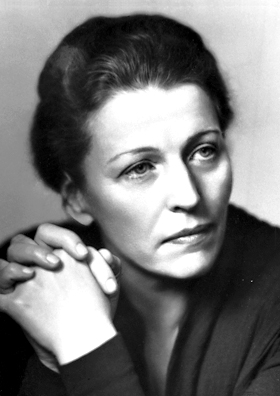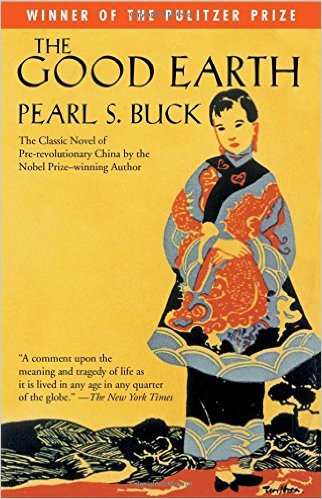 In one of the biggest unexpected discoveries of Athenaeum’s history, Pearl Buck’s 1932 Pulitzer winner found generally enthusiastic and appreciative reception. The Good Earth is the first book in a trilogy and was influential in her winning of the Nobel Prize for literature.
In one of the biggest unexpected discoveries of Athenaeum’s history, Pearl Buck’s 1932 Pulitzer winner found generally enthusiastic and appreciative reception. The Good Earth is the first book in a trilogy and was influential in her winning of the Nobel Prize for literature.
Written in the style reminiscent of old Bible stories or parables, or perhaps affecting a Chinese storytelling mode invented for western readers, The Good Earth tells the life of Wang Lung, a man who goes from a young poor farmer to an old wealthy city man with all the trappings that go along with it.
She does not judge her protagonist for his misjudgments, compromises, his vanity, his treatment of his wife, or his later quest for peace and quiet. She just tells what happened. Given the fabled style and the knowledge that Buck herself was the child of missionaries in China, one may expect something of a morality tale. But instead she tells the events in concise, unaffected prose, letting the reader think about what it means.
Jordan’s nomination was given introduction by his cogent essay in which he pointed out that the Chinese culture was portrayed by Buck as universal and timeless, yet realistic. The land is a character all its own in the book, and it is a source of salvation. His criticism was that Buck seemed captive to a romantic notion of the final goodness of land, an idea with real merit but possibly overplayed in the story. Nevertheless it is an ideal shared by farmers for millennia on every continent, from the banks of the Nile, to the Promised Land of Israel, from vineyards of Tuscany to the fruited American plain.
 Everyone admitted their love for O-Lan, Wang Lung’s boxy, globe-faced bride who bore him sons and daughters, yea, bore in isolation, without a cry, and then returned to the work in the fields before the day was over. Matt went to far as to suggest that the book is really about O-Lan, so prominent was her role. She is always noble in her own moral structure. She is the strong one in the family, and Wang Lung weeps at her death, unable to process the loss of her. She is always practical (she picks up the pork strip that Wang Lung throws in the dirt and washes it off), and his guilt is usually about how he’s treated her.
Everyone admitted their love for O-Lan, Wang Lung’s boxy, globe-faced bride who bore him sons and daughters, yea, bore in isolation, without a cry, and then returned to the work in the fields before the day was over. Matt went to far as to suggest that the book is really about O-Lan, so prominent was her role. She is always noble in her own moral structure. She is the strong one in the family, and Wang Lung weeps at her death, unable to process the loss of her. She is always practical (she picks up the pork strip that Wang Lung throws in the dirt and washes it off), and his guilt is usually about how he’s treated her.
Finally, status and position seem to be the things to concern characters the most after their bellies are filled and the land is free of famine and pestilence. When Wang Lung takes Lotus as a concubine (followed later by Pear Blossom), O-Lan’s anguish is not over his sexual preference for Lotus’s youth, but for the loss of her status. “I bore you sons,” she protests, “I bore you sons!”
Along the same lines, Wang Lung’s grasping for status is seen in the classic conflict between the country bumpkin and the city slicker; we look on knowingly at his new haircut, his fancy new clothes, his new habit of regular bathing.
This book does not submit to easy analysis or dismissal. It treats many complex subjects at a deep level. Some in the group said that the book failed to reach them, and that is fair enough. Others, myself included, were touched by the book, and I recognized uncanny familiar feelings and attitudes experienced by the characters.
The vote for August was tied in the vote and the runoff, and it came down to a coin toss. The coin was lost in the dark for some seconds and was eventually discovered in Randy’s seat, head’s up. The coin decided in favor of Moby Dick, a book that we are reading for the second time, the first time being near the time of the founding of Athenaeum.
Next meeting: In The First Circle.
